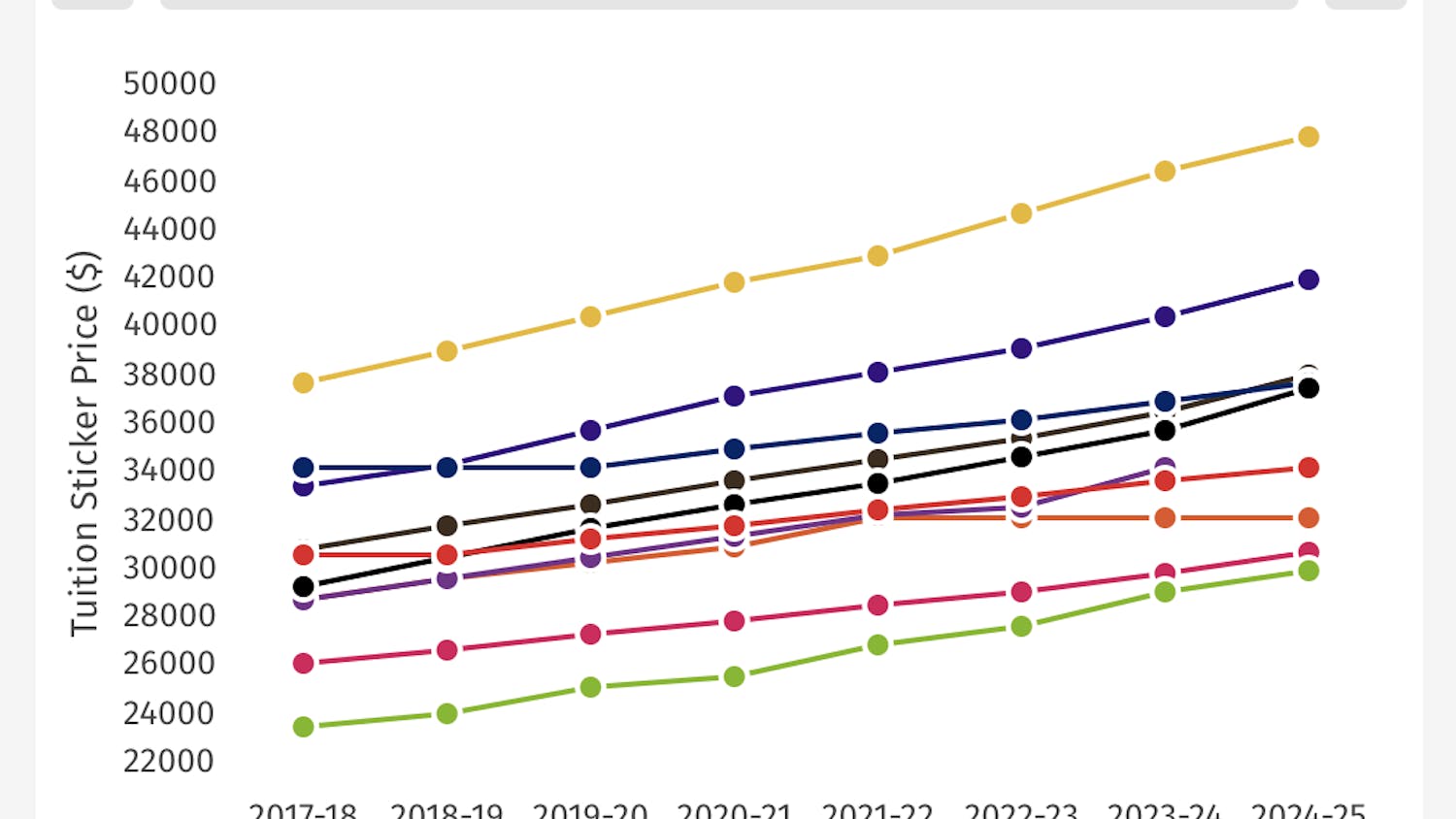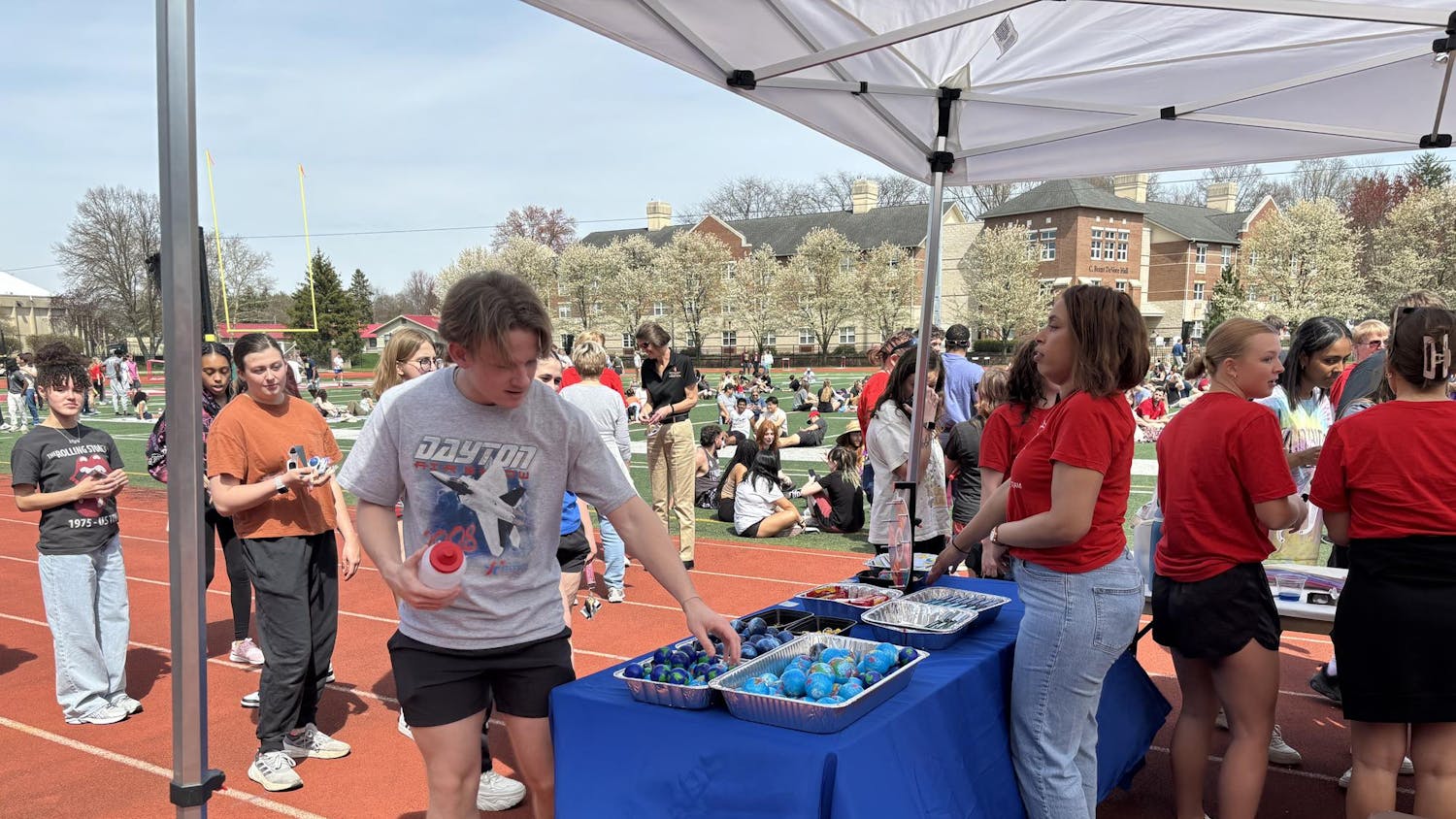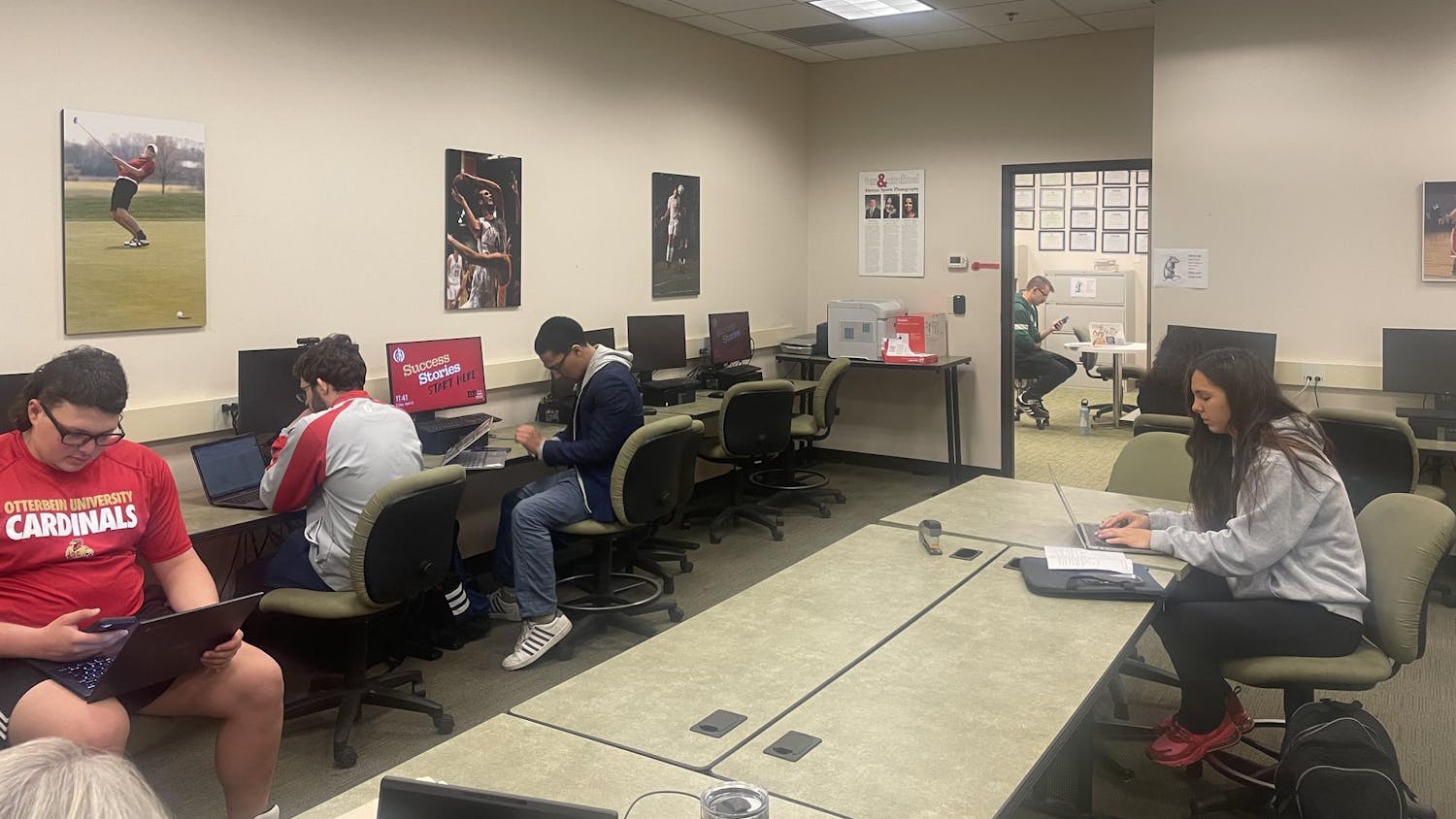Otterbein has never been shy about political involvement. Support groups for Democrats and Republicans, along with everything from door decorations to bumper stickers express political views.
Some wonder if college faculty extend these views to the classroom and are concerned about what effect that has on students.
In a poll conducted by political science professors from Penn-State Harrisburg and Elizabethtown College, Penn., students who claimed to have the same political views as the professors learned more in the class, compared to students with opposing political viewpoints.
Matthew Woessner, of Penn. State Harrisburg, was one of the professors who conducted the poll. He said "It could be that students who disagree with their professor's views follow a natural tendency to avoid or discredit information in the class."
"I have always tried not to use the classroom to announce my personal views," said Allan Cooper, Otterbein political science professor and advisor for the college Republicans and Democrats. "I owe it to the students because they are political science majors to strengthen their own views, help them get a job or become a more informed voter. I'm not trying to push political views."
Cooper suggested that professors focus on creating conversations. "Usually, half of the class thinks I am a Republican and the other half thinks I am Democrat. I don't have a problem explaining personal views, but I just choose not to."
However, Debora Halbert, political science professor at Otterbein, thinks personal political opinions should be discussed when they become relevant to the class.
"If someone wants to have an informal conversation about politics, it could be educational to everybody," said Halbert. "When I disclose my personal political views it's only if somebody asks me."
According to Halbert, there is a way of studying politics that has nothing to do with personal voting records or personal political standpoints.
"In the political science department, we approach it as a discipline, not as some sort of personal agenda," said Halbert.
When it comes to openly taking sides or stating a personal political viewpoint in the classroom, junior criminology major Andrew DiSalvo doesn't necessarily think it's a bad idea.
"I think current politics should be discussed in the classroom because it helps people get informed about our current issues," said DiSalvo.
"Every person has a right to input their opinions, and people also have the right not to participate," he said.
Outside of the history and political science departments, politics are kept quiet in the classroom.
Sophomore business administration major Kayla Kaiser said that politics have never come up in any of her classes.
"I think its fine to have a political discussion in class," said Kaiser. "I wish we would because I feel like I don't know much about the election this year except for who is running."
Another way politics come into the college arena is through organizations like the College Republicans and the College Democrats.
These are groups affiliated with their respective political parties and organize events for the student community and help spread information about candidates.
The College Republicans and Democrats are not as organized this year as they have been in the past, due to the large number of supporters for Barack Obama that cross party lines.
Cooper said that many Republicans are voting democratically, or have chosen to sit out this election and not vote at all.
"Obama's campaign has targeted students. Mainly, just to mobilize communication and to tell students to get out and vote," said Cooper.
"Part of the change occurring is how Obama is running his campaign and how dependent he is on student support. He is asking them to come work on his campaign, not necessarily vote for him," he said.
To get students involved in politics, Halbert encourages them to work for a campaign. She believes this will give them an interesting experience and a way to become involved in the process.
She also allows students to share their personal stories from work or the campaign in the classroom. t&c;





